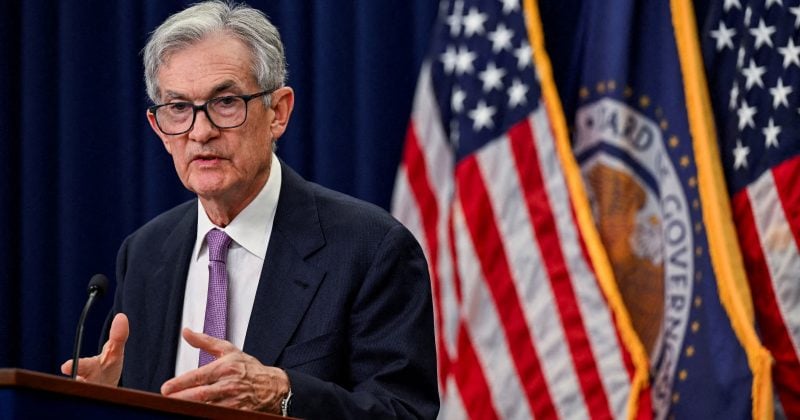TLDR
- Bitcoin hit a new all-time high above $103,000 before experiencing a sharp flash crash to $92,000
- Over $1 billion in liquidations occurred, with 80% from long positions
- BlackRock’s Bitcoin ETF (IBIT) reached $50 billion AUM in record time
- Trump’s re-election and nomination of Paul Atkins as SEC chair influenced market sentiment
- Price has stabilized around $98,000, still up 39% over the past month
Bitcoin’s price experienced intense volatility Thursday as the cryptocurrency retreated below $100,000, hours after setting a new all-time high above $103,000. The sudden downturn triggered widespread liquidations across the crypto market, affecting thousands of traders.
The world’s largest cryptocurrency began its descent at 5:26 PM ET, plunging 6.3% to $92,000 in just three minutes. The sharp movement caused a cascade of forced liquidations, with data from CoinGlass showing over $1 billion in positions were cleared across the crypto market.
Long traders, who bet on price increases, bore the brunt of the losses. About 80% of the liquidations, approximately $817 million, came from long positions. Bitcoin-specific liquidations accounted for $390 million of the total, highlighting the severity of the market movement.
The price has since stabilized around $98,000, representing a 1.7% decline over the past 24 hours. Despite the pullback, Bitcoin remains up 39% over the last 30 days, reflecting strong overall market momentum.
Market analysts attribute the flash crash to overleveraged positions following Bitcoin’s breakthrough of the $100,000 level. Pratik Kala, portfolio manager at Apollo Crypto, noted that funding rates had risen sharply before the drop, indicating an overheated market.
 Bitcoin Price on CoinGecko
Bitcoin Price on CoinGeckoThe concept of funding rates, which are payments between traders holding long and short positions in perpetual futures contracts, serves as a key indicator of market sentiment. High funding rates suggested many traders had taken on excessive leverage, betting on continued price increases.
Earlier this week, BlackRock’s iShares Bitcoin Trust (IBIT) achieved a remarkable milestone, surpassing $50 billion in assets under management in just 228 days. This growth rate outpaced the previous record holder, BlackRock’s iShares Core MSCI EAFE ETF, which took 1,329 days to reach the same threshold.
The broader market context includes President-elect Donald Trump’s influence on crypto sentiment. Trump recently claimed credit for Bitcoin surpassing $100,000, following his nomination of Paul Atkins as the next SEC Chairman. Atkins, a former SEC commissioner, is viewed as potentially more supportive of the cryptocurrency industry than current Chairman Gary Gensler.
The altcoin market also felt the impact of Bitcoin’s volatility. Ethereum experienced liquidations worth $81.81 million, while other major cryptocurrencies including XRP, Dogecoin, and Solana saw combined liquidations exceeding $96 million.
Despite the current downturn, some market analysts maintain an optimistic outlook. CryptoQuant Founder Ki Young Ju advised investors to maintain their positions, suggesting Bitcoin may not have reached its peak.
Do not sell your #Bitcoin.
We’ve hit a new ATH, breaking one of the biggest psychological resistance levels and entering price discovery.
I repeat, DO NOT SELL YOUR BITCOIN. https://t.co/jicCvleaGg
— Ki Young Ju (@ki_young_ju) December 5, 2024
The total crypto market capitalization stands at $3.56 trillion, maintaining a 54% increase despite the recent price action. Market participants continue to monitor institutional investment flows and regulatory developments as key factors influencing future price movement.
The flash crash serves as a reminder of cryptocurrency market volatility, particularly during periods of high leverage and market euphoria. Trading data indicates 181,646 traders were affected by the recent liquidations.
Current market data shows Bitcoin trading at $98,969, as price discovery continues in this new range above previous resistance levels.
The post Bitcoin (BTC) Price: Bitcoin Retreats Below $100,000 After Setting New Record appeared first on Blockonomi.

 1 month ago
30
1 month ago
30









 English (US) ·
English (US) ·